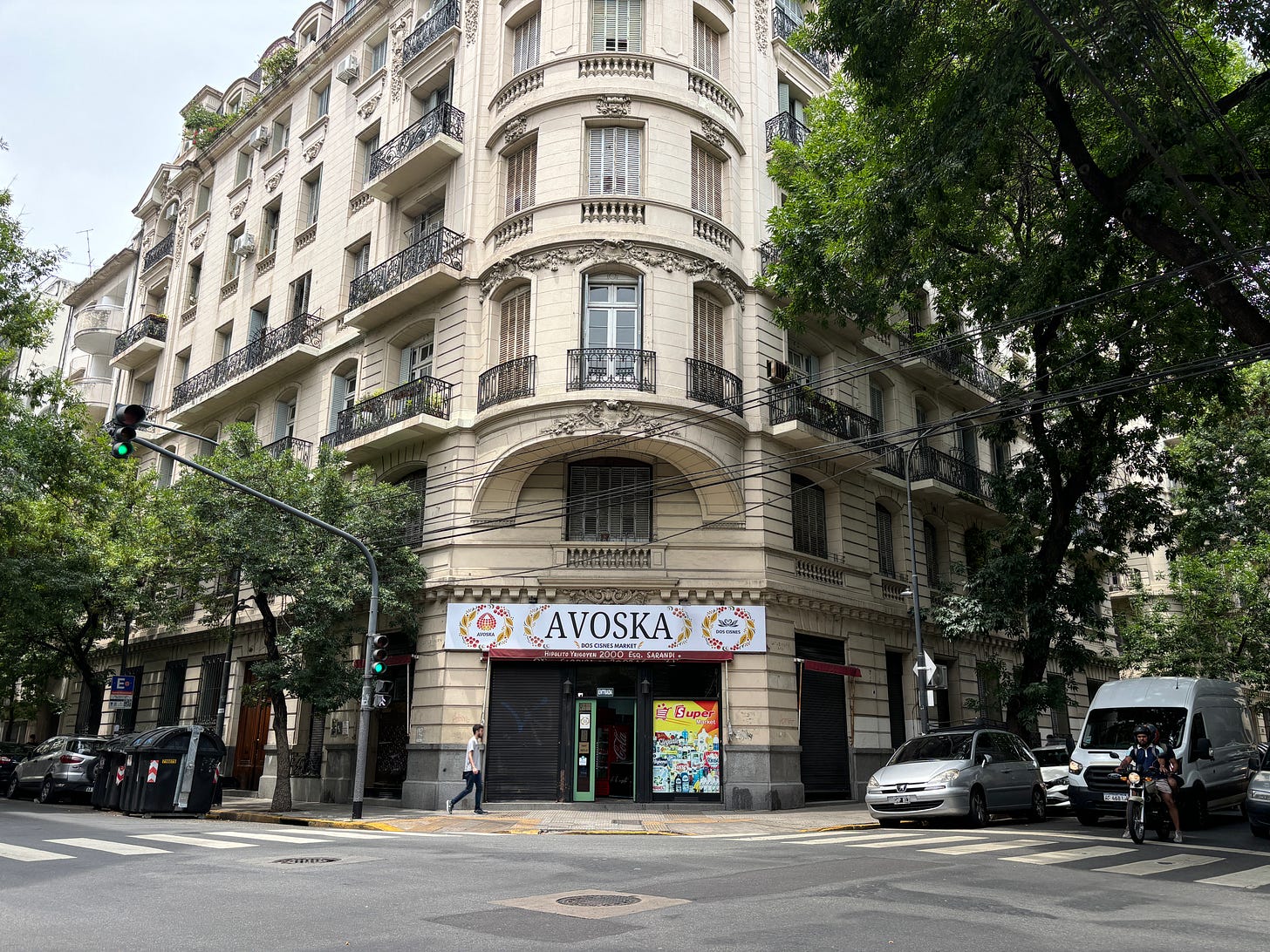
A few months ago, someone tipped me off about a Russian-owned supermarket in Balvanera rumored to carry all sorts of Eastern European delights: frozen dumplings like pierogis, pelmenis, varenikis, sour cream, sauerkraut, sausages, yogurt, Borodinsky dark rye bread, blintzes, and—the holy grail—COTTAGE CHEESE (!!!!).
Now, I’ve been leading a crusade to bring real cottage cheese back to Argentina. It’s one of my favorite foods and a staple I eat for breakfast when I’m in the US. Honestly, my daily life in BA would be much better if it were widely available. I’ve even roped in a crew of prominent chefs to join the cause. My mission? To have a major brand commercialize it—yes, I’m doing God’s work.
So, when I heard cottage cheese was being sold at a Russian market in Balvanera, I ran there immediately.
Side note for those who care: “Queso cottage” actually used to be available in Argentina, but it was pulled from the market decades ago. Today, cheesemakers like Mauricio Couly occasionally make it for select restaurants, but it’s hard to find, has a short shelf life, and is expensive—making it impractical for the masses.
Russians in Buenos Aires
If you’ve walked through neighborhoods like Palermo, Belgrano, or Villa Crespo and heard Russian spoken, you’ve likely noticed the immigration influx in recent years—especially among young families.
Argentina is home to the largest Russian immigrant population in Latin America, a legacy that dates back to the late 19th century when the country actively encouraged European settlement. In recent years, however, there has been a noticeable uptick in arrivals following Russia’s 2022 invasion of Ukraine. According to Letras Libres, by 2024, over 18,000 Russians had relocated to Argentina, attracted by its visa-free entry, relatively straightforward path to citizenship, and an already established Russian-speaking community. In 2023 alone, nearly 10,500 Russian women reportedly traveled to Argentina to give birth, securing citizenship for their children and residency for themselves. (This article by Página 12, however, notes that many Russians are leaving rather than staying permanently.)
Regardless of the numbers, Russian-owned businesses and cultural hubs are popping up in Buenos Aires. While Russian fairs are becoming increasingly popular, Avoska Rusa—a small market in Balvanera serving the community for two years—remains one of the few permanent Russian markets open to the public.
Pick Up the Fork is a reader-supported publication. If you enjoy this work and want to support independent writing, consider upgrading your subscription—every contribution helps keep this labor of love going.
The Haul: What I Bought from the Russian Market
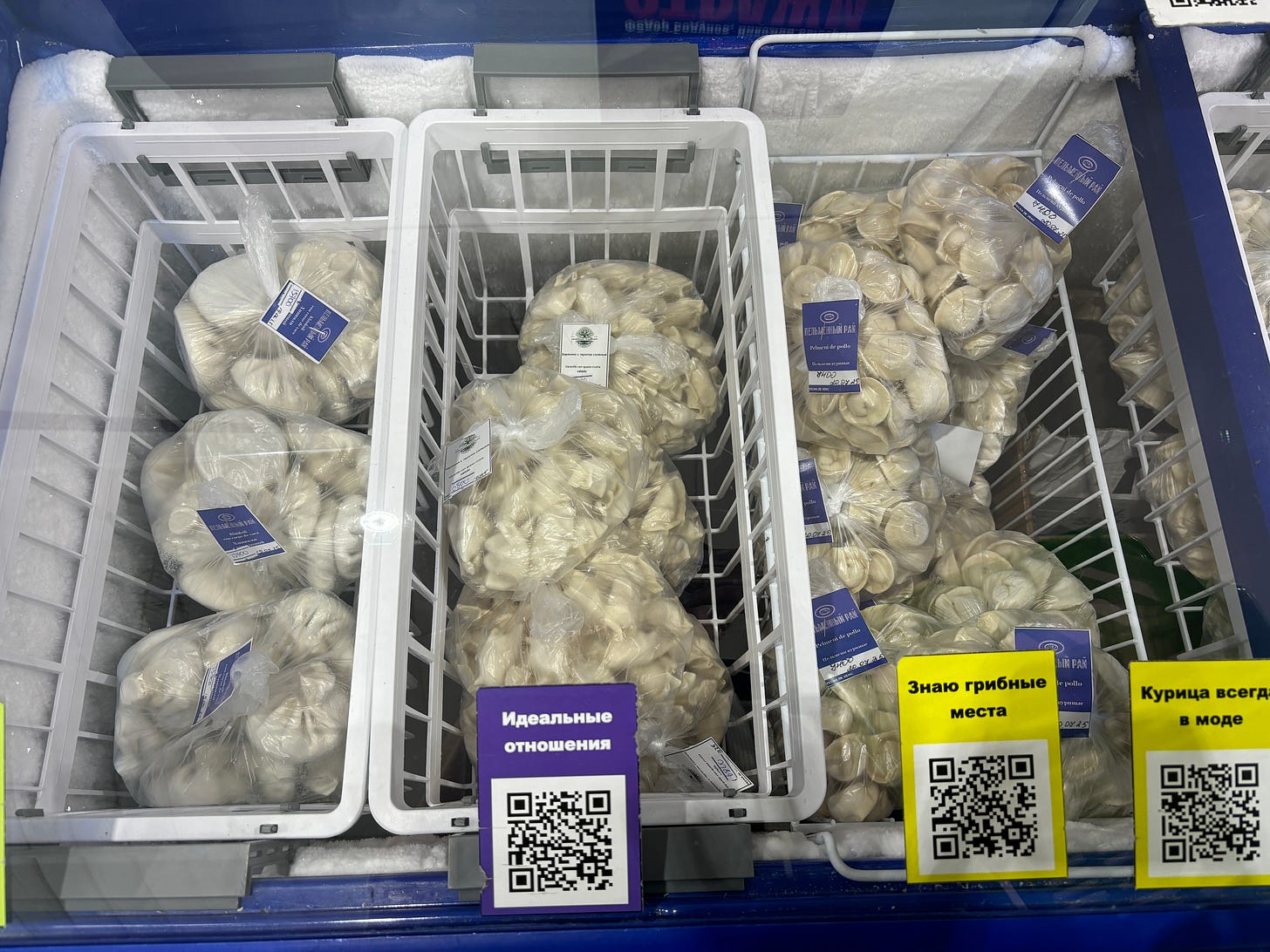
Russian Dumplings – Pelmeni, Pierogis, Varenikis: Russia’s answer to ravioli, these dumplings—stuffed with meat, potatoes, or cheese—are sold frozen and make for an easy, comforting meal. They’re also a total savior to keep stocked in the freezer. When I was in college, I practically lived off pelmenis from Paul’s Pel’meni in Madison, Wisconsin, so they hold a special place in my heart.
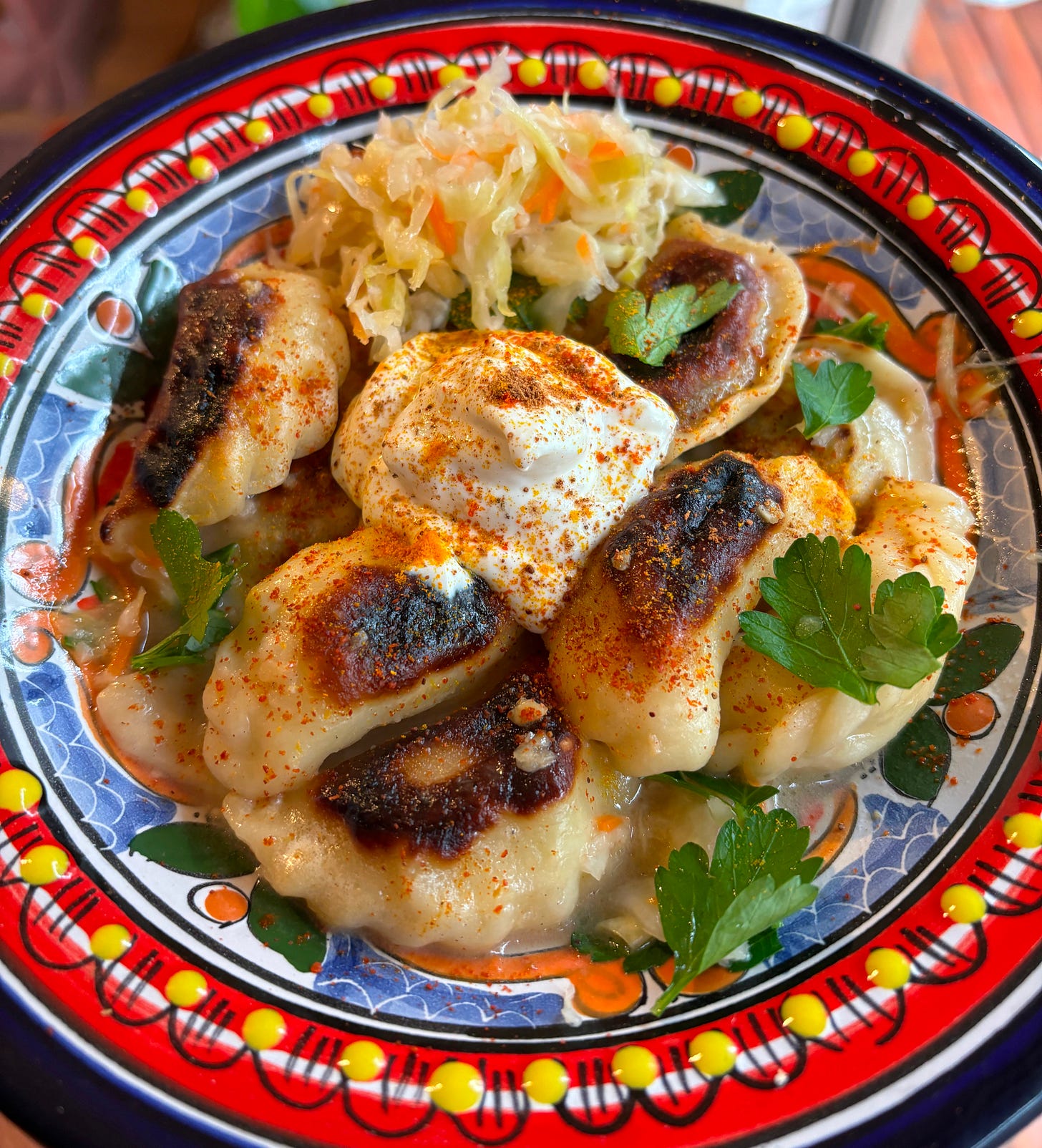
These dumplings are filled with potatoes, onions, and mushrooms. I pan-fried them, then lightly steamed them in chicken stock and served them with sour cream, sauerkraut, paprika, cumin powder, and a touch of hot sauce. Absolutely incredible.
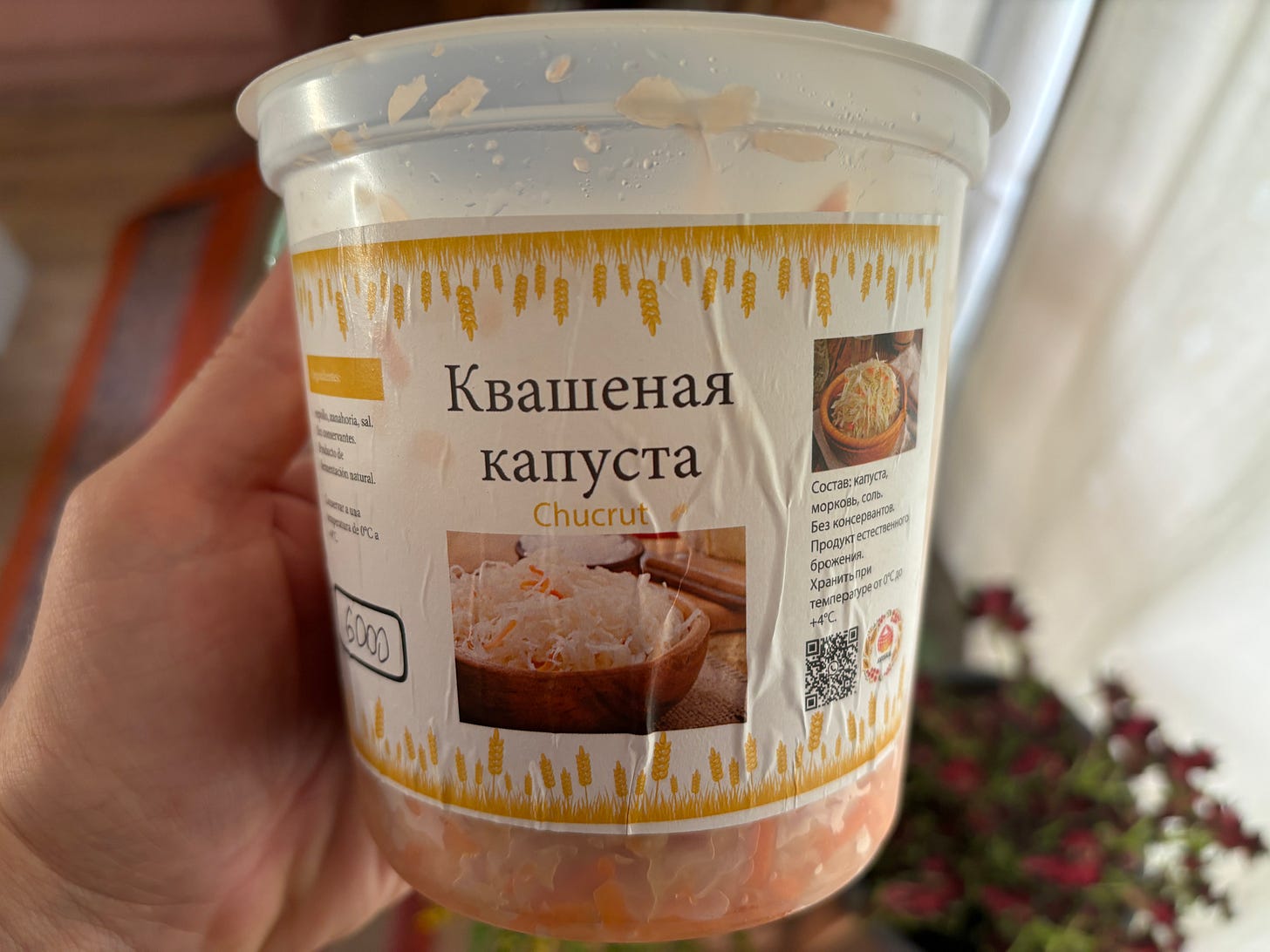
Sauerkraut (chucrut): Bring on the probiotics!
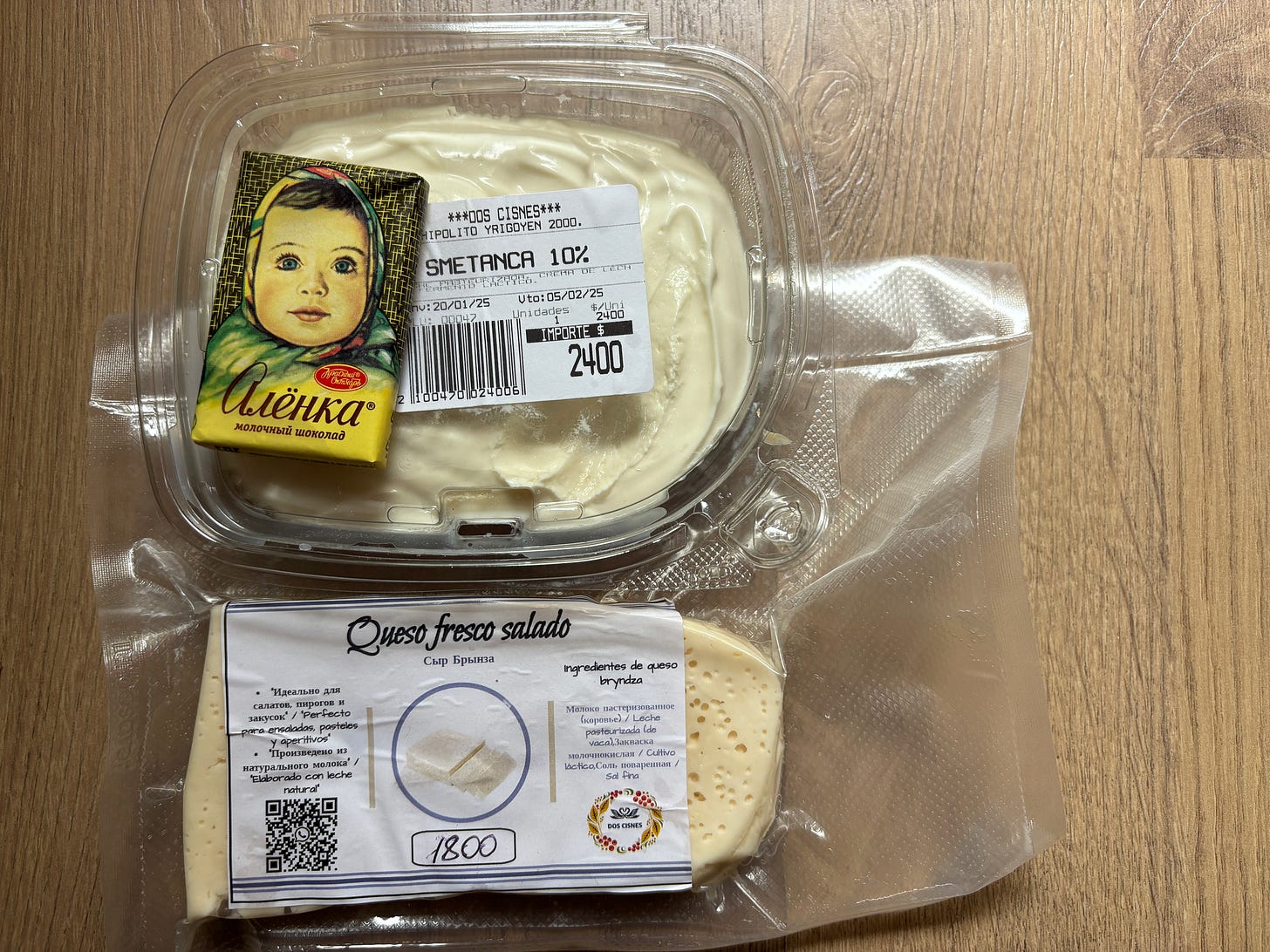
Sour cream (smetana) // Requesón (tvarog) // Fresh Cheese: The dairy fridge is filled with interesting finds, especially the sour cream, queso fresco, and requesón (which is similar to ricotta). They also stock Alenka, the iconic Russian milk chocolate wrapped in its distinctive baby-faced packaging.
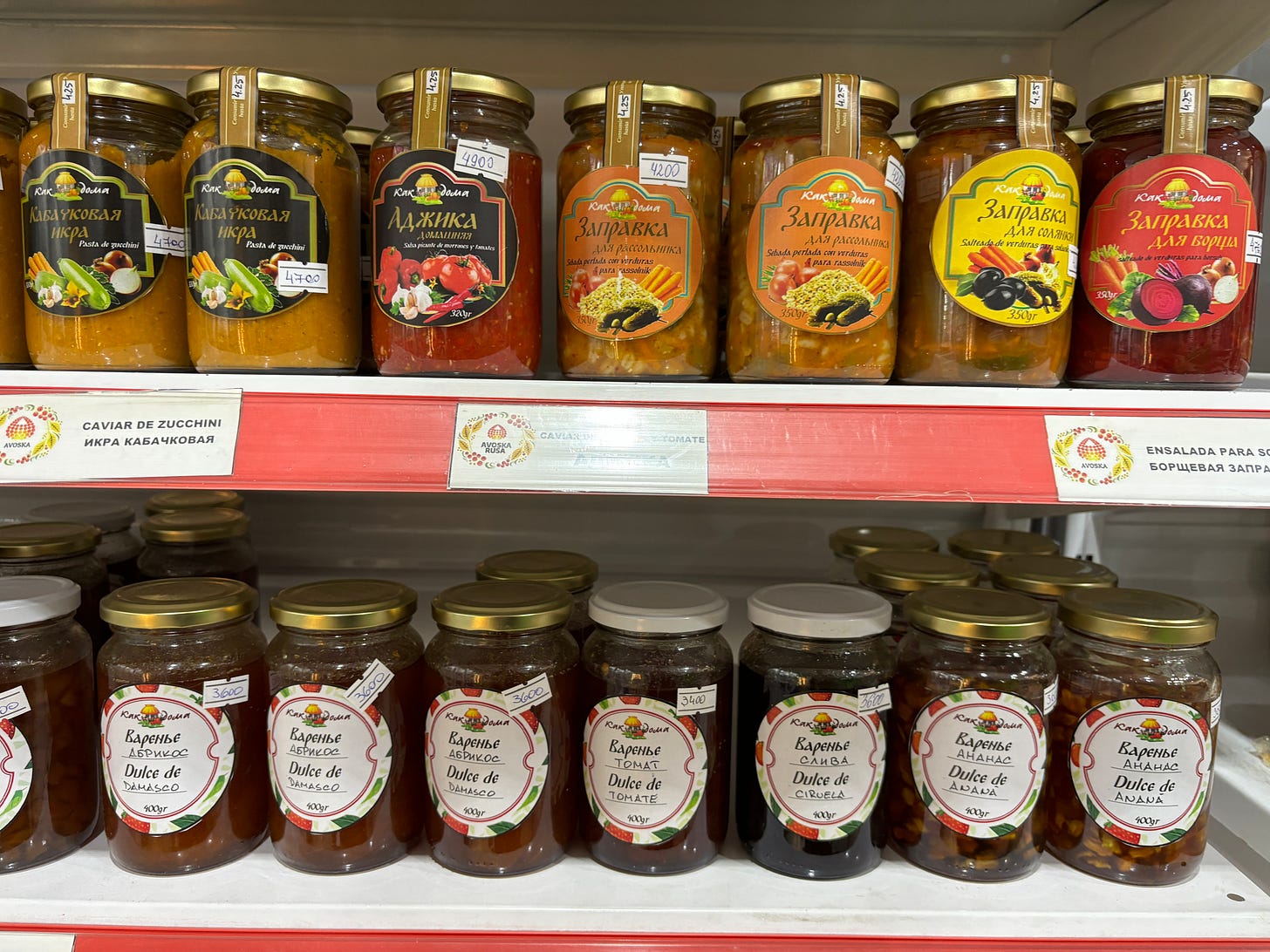
Conservas: I haven’t tried these yet, but the Russian shoppers were stocking up while I was there, which seems like a good sign.
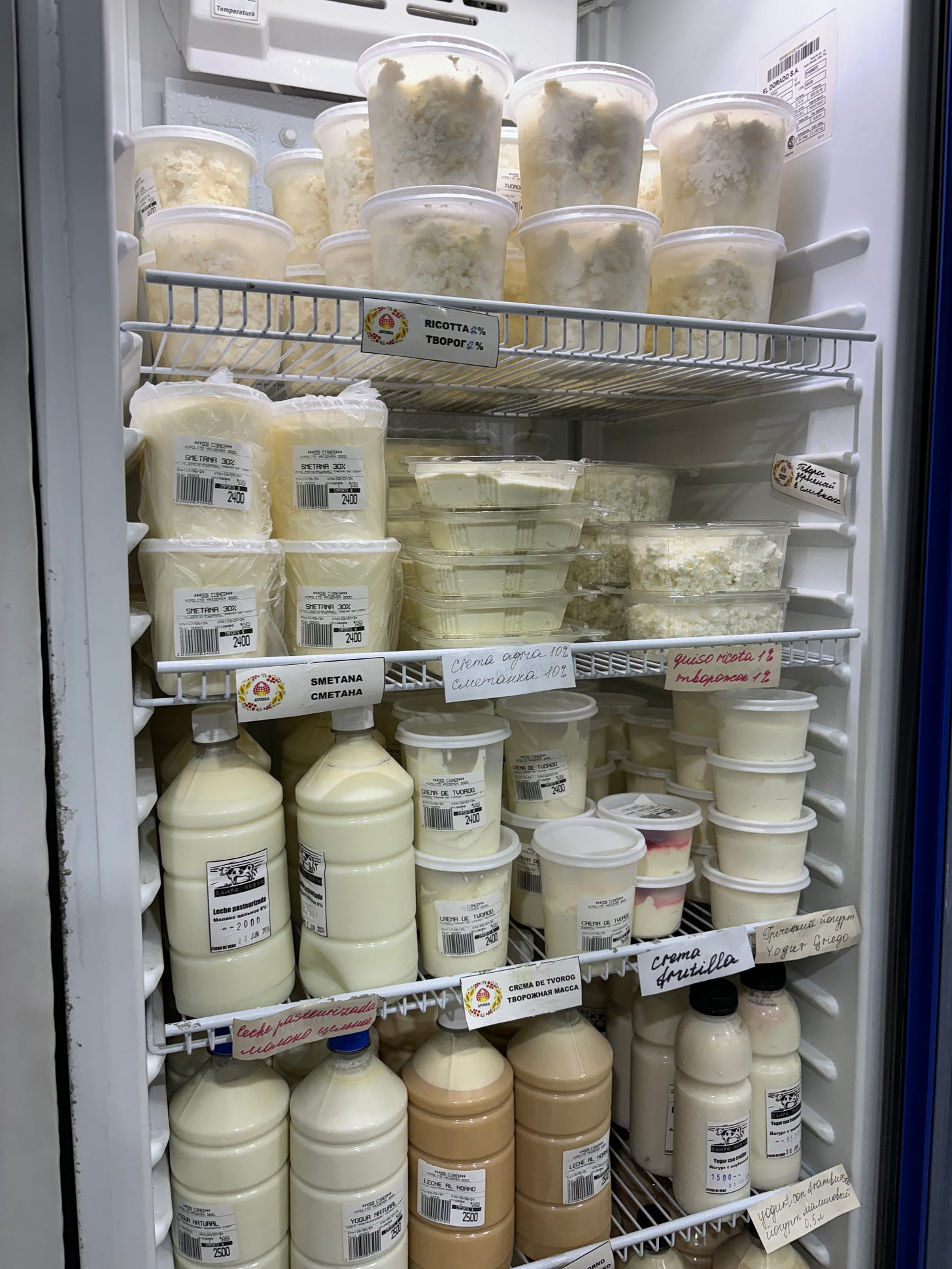
What I didn’t get: Cottage Cheese (womp, womp). Alas, the “cottage cheese” turned out to be tvarog, which has a texture and taste more like ricotta or requesón. It’s still worth buying, but it’s not cottage cheese.
While my cottage cheese craving remains unsatisfied, the market proved to be a treasure trove of Eastern European goodies—and a glimpse into a community adding its own flavor to Buenos Aires. This tiny grocer has been around for over two years, yet I only just discovered it in June—a reminder to keep exploring, whether it’s distant places or hidden gems in plain sight.
If you’re curious, it’s worth checking out—just don’t go expecting cottage cheese.

⚠️ A Word of Caution: Google reviews mention concerns about some packaging and sanitation issues. I’ve never had a problem, but it’s a good idea to check expiration dates and inspect items before buying.
📍 Avoska Rusa — Dos Cisnes Market ~ @avoska.rusa.arg
Hipólito Yrigoyen 2000, Congreso
Leave a Reply